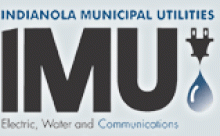Indianola City Owned Network Partners to Encourage Economic Development
“We want to grow our own new businesses in Indianola, and Simpson College is home to an entire group of potential entrepreneurs who we hope will find support for their efforts here and some day choose to locate their businesses here,” [Jerry Kelly, former Indianola mayor and executive director of the city's development association] said. ‘What we are doing is called ‘economic gardening.’ What grows here will stay here.”
Thanks to the Indianola Municipal Utilities (IMU) next-generation broadband network, the city and the college have fertile soil to nurture that garden. We previously wrote about this FTTH partnership here, explaining that the community owns the infrastructure and a local business provides services over the network.
The partnership between Simpson College, the Indianola Development Association, and IMU is called the Indianola + Simpson College Entrepeneurial Devopment Initiative. The student-business incubator will bring together students, mentors, and existing businesses with the hope that resulting entrepeneurships will sprout and grow in Indianola.
Through the partnership, the incubator will have access to IMU's server platforms, wholesale bandwidth, local marketing and outreach efforts, and customer service activities. 25 students will develop senior Capstone Projects through the initiative. College and city leaders anticipate that number will continue to grow.

The Simpson College News Center also writes that the project will be led by Chris Draper. Draper is associated with Des Moines' Startup City, a technology-based business incubator. Draper is CEO of the first graduate of Startup City, Meidh Tech, which offers property management technology solutions.


